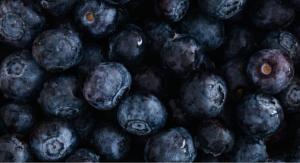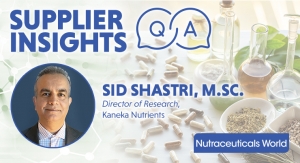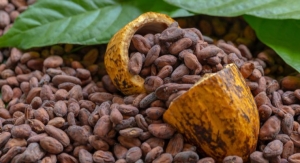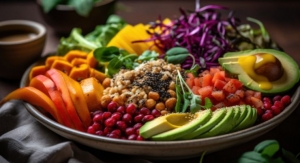By Mike Montemarano, Associate Editor 07.30.20
A nutritional approach to improving mood, focus, and cognitive function is a consumer demand shaping the trajectory of research and product development throughout many ingredient types within the dietary supplements industry. Consumers across a variety of backgrounds are seeking clinically-substantiated products believed to yield benefits in fighting stress, inability to focus, sleep issues, low moods, and more.
The term “nootropic” is perhaps more ubiquitous than ever before in the mindset of consumers, and is commonly applied not only to dietary supplements, but to certain drugs, as well. When a substance gets referred to as a nootropic, at the very least, it should have some kind of clinically-substantiated cognitive benefit. Basic vitamins, minerals, and other nutrients known to assist in maintaining cognitive health are often included in ingredient stacks for cognitive support supplements, though, on their own, are not typically referred to as nootropics.
A Term with Many Definitions
The term nootropic was originally coined by Roman psychologist Dr. Corneliu Giurgea, whose working definition developed over the 1970s and 80s. He identified five criteria that substances must meet in order to be considered a nootropic, though a discerning observer might find that many products claiming to be nootropic might not be evidenced to meet all five criteria.
In the context of dietary supplements, it appears the term nootropic is less rooted in hard neurochemistry, but nonetheless, the term adheres to products that have clinical substantiation supporting benefits to mood, cognitive performance, stress resilience, sleep, and other related outcomes.
“AIDP, Inc. defines nootropics as bioactives that may improve cognitive function, executive function, memory, creativity, focus, and motivation in healthy individuals,” Lauren Clardy, vice president of Branded Ingredients for AIDP, said. “Our portfolio includes science-based ingredients clinically researched with noticeable and distinct benefits to consumers of all ages.”
AIDP currently features three nootropic ingredients in its portfolio. Magtein, a patented compound discovered by MIT scientists, is a highly neuroactive form of magnesium which was shown to yield cognitive benefits in a 2016 clinical trial published in the Journal of Alzheimer’s Disease. Additionally, it offers Bacomind, a full-spectrum extract with nine different bioactives from the Bacopa monnieri plant. Thirdly, they supply OciBest, a supplement whose main active ingredient is Tulsi, an adaptogenic herb heralded by traditional Ayurvedic medicine as a stress-reducer and cognitive enhancer.
Steve Fink, vice president of marketing for PLT Health solutions said the company tends not to use the term “nootropic.” “The terms ‘nootropic’ and ‘cognitive support’ are often used interchangeably,” he continued. “Cognitive support includes any substance that enhances cognitive function, including concentration, learning, memory, and mood. At the same time, we let our customers define what they consider a nootropic.”
PLT’s cognitive support portfolio includes Synapsa, a Bacopa monnieri extract formulated to improve cognitive performance and memory, and Supresa Crave Control, an extract made from the stigmas of saffron which was formulated to induce a feeling of well-being and stress reduction to address the source of stress-related overeating and snacking.
Keeping the Edge
According to Clardy, the key market driver that has caused nootropics to burgeon over the past couple of decades into a multi-billion dollar industry projected to multiply in size over the next few years has to do largely with increased life expectancy, and increased overall productivity.
“A century ago, the average lifespan was 54, and today, it is 80 years old. Second, more people are working longer into their golden years. And finally, in our fast-paced society, consumers are looking for both an edge to stay sharp and a way to find peace and calmness. Ironically, these two are interconnected. When brain neurons are healthy and functioning properly, one has a better ability to focus and has less cognitive stress,” Clardy said.
While cognitive support formulations once targeted prenatal/childhood development and anti-aging in seniors, Fink said the cognitive support market is closing in on solutions for those in the 18-54 age range, a segment that was previously underserved in this realm of nutrition.
“Within this group, we see intense interest in issues such as ‘peak performance,’ ‘well-being,’ and ‘quality of life,’” Fink said. “The market opportunity with this group is massive. Peak performers including knowledge workers and students make up 40% of the U.S. population and growing. Stress affects 75 million people in this group and the effect of stress on other aspects of cognitive function is significant. Similarly, the impact of cognitive performance on other aspects of life is becoming better understood by this demographic—as evidenced by the introduction of ingredients to improve mental performance in exercise via sports nutrition products, and as a means of easier weight management.”
Nootropic supplements also appear to be permeating various segments of consumer demand especially well; these areas include healthy aging, sports/active nutrition, weight management, and more.
However, nootropics also have an exclusive functional niche as well, predominantly for academic performance and memory enhancement. Product launches also appear to be trending toward natural extracts as the active ingredients, catering to a rising demand within the broader supplements space for plant-based, natural, and clean-label ingredients.
Clardy said she believes there is plenty of room for growth in the nootropics sphere, particularly in the benefits they target, and in the beverages space. Already, there are a host of pioneer breakthrough brands formulating drinkable blends of nootropic beverages mostly featuring ingredients discussed later in this story, with branding headed in two clear directions—some of these beverages are marketed in competition with more conventional energy drinks, promising peak performance, while others are marketed as alcohol-free cocktails that still promise a mood-boosting effect. With sugary beverages and energy drinks continually falling out of favor, only time will tell how long it may take for major beverage brands to begin exploring this new territory.
SPINS’s market research concurred with this observation. “On a fundamental level, substances that improve cognitive function and/or performance have existed in food and beverage categories for quite some time. The pathway for new added ingredients, backed by research/science, to enter this market is well paved, familiar to consumers, and thus quite promising,” Xochitl Javier, SPINS' vice president of product intelligence, said. “Future areas of growth will likely include subcategories that consumers often turn to for functionality—like wellness bars, wellness teas, and nutrition/protein beverages.”
Several smaller brands also appear to be incorporating nootropic ingredients into coffee, promising a cognitive boost and diminished feelings of anxiousness that are often par for the course with a regular cup of Joe.
“There are both dietary supplement claims and functional beverage ‘soft’ claims that have taken hold in the market,” Clardy said. “Some challenges for nootropics with functional foods and beverages are cost, dose load, taste, stability and efficacy. However, as pill fatigue grows, and alternative delivery formats continue to rise in popularity we will see more beverages in the market. We believe nootropics can cover a broad range of benefits beyond just memory and encompass many stages of brain wellness. Speed of recall, focus, and mental energy are strong positionings for functional foods and beverages.”
Fink identified weight loss products, both inside and outside of the supplements aisle, as an ideal entry point for cognitive support products, as shown by PLT’s experience formulating the ingredient Zembrin, sourced from the Sceletium tortosum plant, which has been shown to act as a mood-altering stimulant beneficial for enhanced focus and better workouts. Further, he anticipates that cognitive support ingredients will become commonplace in multi-ingredient formulations targeting specific goals.
“The concept is two-fold,” Fink said. “The first area has to do with the notion that weight loss can be a stressful time and that cognitive support can help maintain compliance with a weight management program. The second has to do with providing daily, experiential support. Successful weight management involves diet, exercise, and slow, consistent weight loss. Weight management ingredients are studied over periods of 16 weeks or longer. The idea is that the use of an experiential ingredient like Zembrin can give immediate positive reinforcement and enhanced mood every day over this process.”
The nootropics segment comes with its own set of unique challenges. Reaching clinical substantiation for a product through research involving behavioral analysis and neurochemistry is lengthy, difficult, and expensive in the nutraceuticals space, where most research is funded heavily by the industry itself. Additionally, navigating claims related to cognitive health have some more pronounced difficulties than the claims that exist for more conventional nutrition targets.
“Certainly, age-related cognitive claims overall are high on the FDA/FTC radar as there are unfortunately companies making outlandish and disease-related claims that are not in compliance,” Clardy said.
Additionally, Fink said this burgeoning market is still in need of significant “investment and creativity—as well as some discipline—all with an eye to addressing real world needs of consumers and developing credibility and trust with the consuming public. The investment will involve creating strong, high-quality, transparent ingredients and solid science to support them. Discipline means we’ll have to make realistic promises to the consumer and keep those promises. Creativity will come in the form of innovative ways of thinking about, supporting, and marketing our ingredients. There is an educational opportunity and need in this market segment.”
The Power List
Certainly, improved cognition is something that has mass appeal, and for this reason, interest in supplements with nootropic properties appear to be growing quickly. Google’s search term frequency analytics, for example, show that searches for the term “nootropic” over the past year are about 6.7 times more frequent than 10 years ago, and prominent market research companies report the nootropics category on the whole will continue to grow at an estimated CAGR between 10% and 15%. It is estimated the market will reach somewhere between $5 billion and $6 billion within the next five years.
According to SPINS, the top ingredients found in cognitive health supplements, by sales volume over the past year, are phosphatidylserine ($37 million), ginkgo biloba ($12.7 million), DMAE ($7.6 million), caprylic acid ($7.3 million), DHA products (about $5 million), mushroom products ($4.5 million), ginseng products ($3.9 million), medium-chain triglycerides ($3.7 million) and theanine ($2.9 million).
The top 10 ingredients, by percentage growth, appear to be largely centered around herbs and botanicals. The list included Huperzine, which grew at a staggering 413%, caffeine, bacopa monnieri, GABA, ginseng, turmeric, PQQ, ayurvedic herb products, and reishi mushrooms.
“There has been a shift toward natural nootropics in the past 10 years,” Javier said. Additionally, products are skewing more toward holistic wellness, in an arena formerly dominated by energy benefits. “Consumers are trending more toward supplements marketed for cognitive health functionality (memory support, improved cognition/processing). While energy support supplements have long held the largest market share, that segment’s growth appears to be stagnating as consumers seek a more holistic solution toward cognition and mental performance.”
According to Javier, certain benefits are skewed toward demographics. Younger generations, for example, gravitate toward natural variations of energy ingredients, caffeine, and caffeine alternatives. Supplements which benefit toward fragile, developing brains appeal most to parents of young children. Additionally, there is a well-established base of anti-aging, memory support products that have been a mainstay among older generations.
Star Ingredients
Some nootropic supplements are certainly more popular than others, and, like virtually all dietary supplement categories, that popularity is driven by how extensive the backlog of research behind any product is combined with how long it has been available on the market.
Nootropics leading the market can, more or less, be broken down into compounds found within the body, essential vitamins and minerals, non-drug precursors to beneficial neurotransmitters, herbal remedies, and other synthetic compounds.
Endogenous Compounds
Some of the most prevalent nootropic supplements used today contain ingredients produced within the body. Many amino acids, lipids, and other endogenous compounds, when taken at higher levels than those which ordinarily occur in the diet, have been evidenced to have cognitive benefits.
L-theanine, an amino acid found in high concentrations in black and green tea, has been sought after for its cognitive benefits for virtually as long as tea leaves have been consumed. Research has shown that L-theanine extracted from tea was efficacious in numerous clinical trials in significantly reducing feelings of anxiety and stress in several placebo-controlled studies. Additionally, when paired with moderate levels of caffeine, supplementation exhibited an entourage effect improving the focus of adults during demanding cognitive battery tests in a 2013 clinical study. L-theanine has been shown to cross the blood-brain barrier, has the ability to modulate selective serotonin and dopamine, and has been shown to significantly reduce levels of the stress hormone corticosterone.
Phosphatidylserine, a fatty substance and major component of nerve cell membranes, has been shown to have a role in maintaining good memory, and studies have provided evidence that supplements could be a natural remedy addressing a host of health conditions, such as preserving memory, promoting healthy sleep, improving mood, and enhancing exercise performance.
Creatine, while not an amino acid, is synthesized in the human body from amino acids primarily in the liver and kidney. This meat constituent first burgeoned explosively on the market as one of the most sought-after supplement ingredients by bodybuilders since the mid-90s. However, in addition to its ability to improve muscle gains among weight trainers, more novel clinical trials point to creatine as a possible nootropic solution for healthy aging. Research suggests that cognitive benefits are more profound in those who don’t consume a lot of creatine in their diet, such as those who adhere to a plant-based diet.
Taurine, another amino acid associated with many sports nutrition benefits, has also been researched for its role on neurological and cognitive processes in recent years. Taurine is present in the brain in the embryonic and early postnatal stages, but later in life is synthesized at levels that necessitate essential intake. The amino acid, not found in effective concentrations from food sources other than raw fish, is believed to have a calmative effect based on observational research indicating that it has a role in binding to receptors of the GABAergic and glycinergic system. It also decreases the uptake of corticosterone and other stress-related hormones.
GABA, another prevalent neurotransmitter, is produced endogenously in the brain, where it functions as an inhibitory neurotransmitter associated with relaxation, stress and anxiety reduction, improved sleep, and more. While GABA itself can be extracted for use in supplements, there are also a number of plant-based foods and ingredients which have been shown in clinical trials to raise GABA production to optimal levels, such as supplements containing L-arginine, American ginseng, and others.
SAMe, another endogenous amino acid, has been studied extensively in the treatment of osteoarthritis and depression since its discovery almost 70 years ago. Sold in Europe as a prescription drug and in the U.S. as a dietary supplement, this compound is a methyl group donor which assists the body in producing dopamine and serotonin, and may facilitate the production of cartilage components, which researchers believe may also aid in inflammation.
Brilliant Botanicals
The market of nootropic herbs is vast, and research is expansive, in part due to the fact that many of these plants have been heralded for cognitive benefits by ancient medicine practitioners for thousands of years, and are now being put to the test with industry support.
If Ayurvedic medicine is known for anything, it is its use of a class of herbs known as adaptogens, which are evidenced to contain bioactive compounds extracted to help regulate various functions associated with resilience to stress. Bacopa monnieri, ashwagandha, and turmeric, three leading Ayurvedic herbs, have been extensively investigated by clinical researchers. Clinical trials involving molecular neurocscience and behavioral research have revealed that adaptogens hold a powerful class of compounds, some of which are neuroprotective, and others which beneficially modulate neurotransmitters and hormones, in a way that may reduce stress and boost brain function.
Other heralded ancient remedies from a host of other cultures continue to top the charts in the nootropics market, as well. Huperzine A, for example, is an alkaloid isolated from a Chinese club moss, and has been studied for its possible benefits on memory and acetylcholine signaling. Panax ginseng has been shown to boost physical and mental energy, and improve memory and learning, through a unique class of steroid-like compounds found only in ginseng species. Gingko biloba, sourced from dried leaves of a tree of the same name, has been studied as a possible mitigator of age-related cognitive impairment.
Two mushrooms, lion’s mane and reishi, have been evaluated in a small number of clinical trials for possible cognitive benefits and some clinical evidence suggests they may hold properties which prevent the degeneration of neurons.
Precursors
Neuroscience has identified a number of natural compounds abundant in many of the foods we eat which are directly involved in the synthesis of neurotransmitters such as serotonin, oxytocin, dopamine, and more. As such, many extracted precursors involved in the production of these neurotransmitters have been formulated for the purposes of enhanced cognitive health, mood, and performance.
Clinical trials back the efficacy of 5-HTP, an amino acid also known as oxitriptan, in improving serotonin levels. While its regulatory status (as either a supplement or a drug) varies region by region, it is commonly sold over-the-counter, and is directly involved in the synthesis of serotonin. Reviews have shown that its absorption is roughly 50%, and that it does, in fact, cause a short-term uptick in the production of serotonin, a neurotransmitter associated with depression, anxiety, weight management, and more.
DMAE, another compound produced in the body and found abundantly in the brain, is thought to work by increasing the production of acetylcholine, a neurotransmitter which is critical for proper nerve signaling, and researchers believe that it could help optimize many cognitive functions, while also preventing age-related cognitive decline.
Another of the most recent breakthrough discoveries in the nootropics space is Nicotinamide Riboside, a compound found within the vitamin B3 family shown to increase levels of NAD+ throughout the body. NAD+ may not be a neurotransmitter, however, clinical evidence suggests that it is crucial to maintaining cognitive health as we age, as virtually all cells require it in order to maintain energy homeostasis. Discovered in 2004 by University of Iowa biochemist Dr. Charles Brenner, this compound is believed to combat the effects of cellular aging. Chromadex, which holds a patent on the compound, has funded extensive research supporting its role in age-related conditions that contribute to cognitive decline.
Neurobiotics
As the market for nootropics becomes more sophisticated, it’s likely that other ingredients which modulate cognitive health and mood may eventually become part of consumers’ nootropics regimen. One burgeoning area in cognitive health includes the use of probiotics for these benefits, through what’s known as the gut-brain axis. In addition to the fact that the majority of serotonin in the human body is produced in the stomach by synthesizing its precursor, tryptophan, researchers are continuously identifying gut microbiota that release neurotransmitters and other beneficial hormones in the body which could result in nootropic benefits, for example.
While probiotic products formulated to enhance cognitive health are few and far between, it’s safe to assume that the rate at which “neurobiotic” products are launched will skyrocket with the understanding that the gut-brain axis is such a novel concept in clinical research in the role that intestinal microbiota play in the cognitive sphere.
The term “nootropic” is perhaps more ubiquitous than ever before in the mindset of consumers, and is commonly applied not only to dietary supplements, but to certain drugs, as well. When a substance gets referred to as a nootropic, at the very least, it should have some kind of clinically-substantiated cognitive benefit. Basic vitamins, minerals, and other nutrients known to assist in maintaining cognitive health are often included in ingredient stacks for cognitive support supplements, though, on their own, are not typically referred to as nootropics.
A Term with Many Definitions
The term nootropic was originally coined by Roman psychologist Dr. Corneliu Giurgea, whose working definition developed over the 1970s and 80s. He identified five criteria that substances must meet in order to be considered a nootropic, though a discerning observer might find that many products claiming to be nootropic might not be evidenced to meet all five criteria.
In the context of dietary supplements, it appears the term nootropic is less rooted in hard neurochemistry, but nonetheless, the term adheres to products that have clinical substantiation supporting benefits to mood, cognitive performance, stress resilience, sleep, and other related outcomes.
“AIDP, Inc. defines nootropics as bioactives that may improve cognitive function, executive function, memory, creativity, focus, and motivation in healthy individuals,” Lauren Clardy, vice president of Branded Ingredients for AIDP, said. “Our portfolio includes science-based ingredients clinically researched with noticeable and distinct benefits to consumers of all ages.”
AIDP currently features three nootropic ingredients in its portfolio. Magtein, a patented compound discovered by MIT scientists, is a highly neuroactive form of magnesium which was shown to yield cognitive benefits in a 2016 clinical trial published in the Journal of Alzheimer’s Disease. Additionally, it offers Bacomind, a full-spectrum extract with nine different bioactives from the Bacopa monnieri plant. Thirdly, they supply OciBest, a supplement whose main active ingredient is Tulsi, an adaptogenic herb heralded by traditional Ayurvedic medicine as a stress-reducer and cognitive enhancer.
Steve Fink, vice president of marketing for PLT Health solutions said the company tends not to use the term “nootropic.” “The terms ‘nootropic’ and ‘cognitive support’ are often used interchangeably,” he continued. “Cognitive support includes any substance that enhances cognitive function, including concentration, learning, memory, and mood. At the same time, we let our customers define what they consider a nootropic.”
PLT’s cognitive support portfolio includes Synapsa, a Bacopa monnieri extract formulated to improve cognitive performance and memory, and Supresa Crave Control, an extract made from the stigmas of saffron which was formulated to induce a feeling of well-being and stress reduction to address the source of stress-related overeating and snacking.
Keeping the Edge
According to Clardy, the key market driver that has caused nootropics to burgeon over the past couple of decades into a multi-billion dollar industry projected to multiply in size over the next few years has to do largely with increased life expectancy, and increased overall productivity.
“A century ago, the average lifespan was 54, and today, it is 80 years old. Second, more people are working longer into their golden years. And finally, in our fast-paced society, consumers are looking for both an edge to stay sharp and a way to find peace and calmness. Ironically, these two are interconnected. When brain neurons are healthy and functioning properly, one has a better ability to focus and has less cognitive stress,” Clardy said.
While cognitive support formulations once targeted prenatal/childhood development and anti-aging in seniors, Fink said the cognitive support market is closing in on solutions for those in the 18-54 age range, a segment that was previously underserved in this realm of nutrition.
“Within this group, we see intense interest in issues such as ‘peak performance,’ ‘well-being,’ and ‘quality of life,’” Fink said. “The market opportunity with this group is massive. Peak performers including knowledge workers and students make up 40% of the U.S. population and growing. Stress affects 75 million people in this group and the effect of stress on other aspects of cognitive function is significant. Similarly, the impact of cognitive performance on other aspects of life is becoming better understood by this demographic—as evidenced by the introduction of ingredients to improve mental performance in exercise via sports nutrition products, and as a means of easier weight management.”
Nootropic supplements also appear to be permeating various segments of consumer demand especially well; these areas include healthy aging, sports/active nutrition, weight management, and more.
However, nootropics also have an exclusive functional niche as well, predominantly for academic performance and memory enhancement. Product launches also appear to be trending toward natural extracts as the active ingredients, catering to a rising demand within the broader supplements space for plant-based, natural, and clean-label ingredients.
Clardy said she believes there is plenty of room for growth in the nootropics sphere, particularly in the benefits they target, and in the beverages space. Already, there are a host of pioneer breakthrough brands formulating drinkable blends of nootropic beverages mostly featuring ingredients discussed later in this story, with branding headed in two clear directions—some of these beverages are marketed in competition with more conventional energy drinks, promising peak performance, while others are marketed as alcohol-free cocktails that still promise a mood-boosting effect. With sugary beverages and energy drinks continually falling out of favor, only time will tell how long it may take for major beverage brands to begin exploring this new territory.
SPINS’s market research concurred with this observation. “On a fundamental level, substances that improve cognitive function and/or performance have existed in food and beverage categories for quite some time. The pathway for new added ingredients, backed by research/science, to enter this market is well paved, familiar to consumers, and thus quite promising,” Xochitl Javier, SPINS' vice president of product intelligence, said. “Future areas of growth will likely include subcategories that consumers often turn to for functionality—like wellness bars, wellness teas, and nutrition/protein beverages.”
Several smaller brands also appear to be incorporating nootropic ingredients into coffee, promising a cognitive boost and diminished feelings of anxiousness that are often par for the course with a regular cup of Joe.
“There are both dietary supplement claims and functional beverage ‘soft’ claims that have taken hold in the market,” Clardy said. “Some challenges for nootropics with functional foods and beverages are cost, dose load, taste, stability and efficacy. However, as pill fatigue grows, and alternative delivery formats continue to rise in popularity we will see more beverages in the market. We believe nootropics can cover a broad range of benefits beyond just memory and encompass many stages of brain wellness. Speed of recall, focus, and mental energy are strong positionings for functional foods and beverages.”
Fink identified weight loss products, both inside and outside of the supplements aisle, as an ideal entry point for cognitive support products, as shown by PLT’s experience formulating the ingredient Zembrin, sourced from the Sceletium tortosum plant, which has been shown to act as a mood-altering stimulant beneficial for enhanced focus and better workouts. Further, he anticipates that cognitive support ingredients will become commonplace in multi-ingredient formulations targeting specific goals.
“The concept is two-fold,” Fink said. “The first area has to do with the notion that weight loss can be a stressful time and that cognitive support can help maintain compliance with a weight management program. The second has to do with providing daily, experiential support. Successful weight management involves diet, exercise, and slow, consistent weight loss. Weight management ingredients are studied over periods of 16 weeks or longer. The idea is that the use of an experiential ingredient like Zembrin can give immediate positive reinforcement and enhanced mood every day over this process.”
The nootropics segment comes with its own set of unique challenges. Reaching clinical substantiation for a product through research involving behavioral analysis and neurochemistry is lengthy, difficult, and expensive in the nutraceuticals space, where most research is funded heavily by the industry itself. Additionally, navigating claims related to cognitive health have some more pronounced difficulties than the claims that exist for more conventional nutrition targets.
“Certainly, age-related cognitive claims overall are high on the FDA/FTC radar as there are unfortunately companies making outlandish and disease-related claims that are not in compliance,” Clardy said.
Additionally, Fink said this burgeoning market is still in need of significant “investment and creativity—as well as some discipline—all with an eye to addressing real world needs of consumers and developing credibility and trust with the consuming public. The investment will involve creating strong, high-quality, transparent ingredients and solid science to support them. Discipline means we’ll have to make realistic promises to the consumer and keep those promises. Creativity will come in the form of innovative ways of thinking about, supporting, and marketing our ingredients. There is an educational opportunity and need in this market segment.”
The Power List
Certainly, improved cognition is something that has mass appeal, and for this reason, interest in supplements with nootropic properties appear to be growing quickly. Google’s search term frequency analytics, for example, show that searches for the term “nootropic” over the past year are about 6.7 times more frequent than 10 years ago, and prominent market research companies report the nootropics category on the whole will continue to grow at an estimated CAGR between 10% and 15%. It is estimated the market will reach somewhere between $5 billion and $6 billion within the next five years.
According to SPINS, the top ingredients found in cognitive health supplements, by sales volume over the past year, are phosphatidylserine ($37 million), ginkgo biloba ($12.7 million), DMAE ($7.6 million), caprylic acid ($7.3 million), DHA products (about $5 million), mushroom products ($4.5 million), ginseng products ($3.9 million), medium-chain triglycerides ($3.7 million) and theanine ($2.9 million).
The top 10 ingredients, by percentage growth, appear to be largely centered around herbs and botanicals. The list included Huperzine, which grew at a staggering 413%, caffeine, bacopa monnieri, GABA, ginseng, turmeric, PQQ, ayurvedic herb products, and reishi mushrooms.
“There has been a shift toward natural nootropics in the past 10 years,” Javier said. Additionally, products are skewing more toward holistic wellness, in an arena formerly dominated by energy benefits. “Consumers are trending more toward supplements marketed for cognitive health functionality (memory support, improved cognition/processing). While energy support supplements have long held the largest market share, that segment’s growth appears to be stagnating as consumers seek a more holistic solution toward cognition and mental performance.”
According to Javier, certain benefits are skewed toward demographics. Younger generations, for example, gravitate toward natural variations of energy ingredients, caffeine, and caffeine alternatives. Supplements which benefit toward fragile, developing brains appeal most to parents of young children. Additionally, there is a well-established base of anti-aging, memory support products that have been a mainstay among older generations.
Star Ingredients
Some nootropic supplements are certainly more popular than others, and, like virtually all dietary supplement categories, that popularity is driven by how extensive the backlog of research behind any product is combined with how long it has been available on the market.
Nootropics leading the market can, more or less, be broken down into compounds found within the body, essential vitamins and minerals, non-drug precursors to beneficial neurotransmitters, herbal remedies, and other synthetic compounds.
Endogenous Compounds
Some of the most prevalent nootropic supplements used today contain ingredients produced within the body. Many amino acids, lipids, and other endogenous compounds, when taken at higher levels than those which ordinarily occur in the diet, have been evidenced to have cognitive benefits.
L-theanine, an amino acid found in high concentrations in black and green tea, has been sought after for its cognitive benefits for virtually as long as tea leaves have been consumed. Research has shown that L-theanine extracted from tea was efficacious in numerous clinical trials in significantly reducing feelings of anxiety and stress in several placebo-controlled studies. Additionally, when paired with moderate levels of caffeine, supplementation exhibited an entourage effect improving the focus of adults during demanding cognitive battery tests in a 2013 clinical study. L-theanine has been shown to cross the blood-brain barrier, has the ability to modulate selective serotonin and dopamine, and has been shown to significantly reduce levels of the stress hormone corticosterone.
Phosphatidylserine, a fatty substance and major component of nerve cell membranes, has been shown to have a role in maintaining good memory, and studies have provided evidence that supplements could be a natural remedy addressing a host of health conditions, such as preserving memory, promoting healthy sleep, improving mood, and enhancing exercise performance.
Creatine, while not an amino acid, is synthesized in the human body from amino acids primarily in the liver and kidney. This meat constituent first burgeoned explosively on the market as one of the most sought-after supplement ingredients by bodybuilders since the mid-90s. However, in addition to its ability to improve muscle gains among weight trainers, more novel clinical trials point to creatine as a possible nootropic solution for healthy aging. Research suggests that cognitive benefits are more profound in those who don’t consume a lot of creatine in their diet, such as those who adhere to a plant-based diet.
Taurine, another amino acid associated with many sports nutrition benefits, has also been researched for its role on neurological and cognitive processes in recent years. Taurine is present in the brain in the embryonic and early postnatal stages, but later in life is synthesized at levels that necessitate essential intake. The amino acid, not found in effective concentrations from food sources other than raw fish, is believed to have a calmative effect based on observational research indicating that it has a role in binding to receptors of the GABAergic and glycinergic system. It also decreases the uptake of corticosterone and other stress-related hormones.
GABA, another prevalent neurotransmitter, is produced endogenously in the brain, where it functions as an inhibitory neurotransmitter associated with relaxation, stress and anxiety reduction, improved sleep, and more. While GABA itself can be extracted for use in supplements, there are also a number of plant-based foods and ingredients which have been shown in clinical trials to raise GABA production to optimal levels, such as supplements containing L-arginine, American ginseng, and others.
SAMe, another endogenous amino acid, has been studied extensively in the treatment of osteoarthritis and depression since its discovery almost 70 years ago. Sold in Europe as a prescription drug and in the U.S. as a dietary supplement, this compound is a methyl group donor which assists the body in producing dopamine and serotonin, and may facilitate the production of cartilage components, which researchers believe may also aid in inflammation.
Brilliant Botanicals
The market of nootropic herbs is vast, and research is expansive, in part due to the fact that many of these plants have been heralded for cognitive benefits by ancient medicine practitioners for thousands of years, and are now being put to the test with industry support.
If Ayurvedic medicine is known for anything, it is its use of a class of herbs known as adaptogens, which are evidenced to contain bioactive compounds extracted to help regulate various functions associated with resilience to stress. Bacopa monnieri, ashwagandha, and turmeric, three leading Ayurvedic herbs, have been extensively investigated by clinical researchers. Clinical trials involving molecular neurocscience and behavioral research have revealed that adaptogens hold a powerful class of compounds, some of which are neuroprotective, and others which beneficially modulate neurotransmitters and hormones, in a way that may reduce stress and boost brain function.
Other heralded ancient remedies from a host of other cultures continue to top the charts in the nootropics market, as well. Huperzine A, for example, is an alkaloid isolated from a Chinese club moss, and has been studied for its possible benefits on memory and acetylcholine signaling. Panax ginseng has been shown to boost physical and mental energy, and improve memory and learning, through a unique class of steroid-like compounds found only in ginseng species. Gingko biloba, sourced from dried leaves of a tree of the same name, has been studied as a possible mitigator of age-related cognitive impairment.
Two mushrooms, lion’s mane and reishi, have been evaluated in a small number of clinical trials for possible cognitive benefits and some clinical evidence suggests they may hold properties which prevent the degeneration of neurons.
Precursors
Neuroscience has identified a number of natural compounds abundant in many of the foods we eat which are directly involved in the synthesis of neurotransmitters such as serotonin, oxytocin, dopamine, and more. As such, many extracted precursors involved in the production of these neurotransmitters have been formulated for the purposes of enhanced cognitive health, mood, and performance.
Clinical trials back the efficacy of 5-HTP, an amino acid also known as oxitriptan, in improving serotonin levels. While its regulatory status (as either a supplement or a drug) varies region by region, it is commonly sold over-the-counter, and is directly involved in the synthesis of serotonin. Reviews have shown that its absorption is roughly 50%, and that it does, in fact, cause a short-term uptick in the production of serotonin, a neurotransmitter associated with depression, anxiety, weight management, and more.
DMAE, another compound produced in the body and found abundantly in the brain, is thought to work by increasing the production of acetylcholine, a neurotransmitter which is critical for proper nerve signaling, and researchers believe that it could help optimize many cognitive functions, while also preventing age-related cognitive decline.
Another of the most recent breakthrough discoveries in the nootropics space is Nicotinamide Riboside, a compound found within the vitamin B3 family shown to increase levels of NAD+ throughout the body. NAD+ may not be a neurotransmitter, however, clinical evidence suggests that it is crucial to maintaining cognitive health as we age, as virtually all cells require it in order to maintain energy homeostasis. Discovered in 2004 by University of Iowa biochemist Dr. Charles Brenner, this compound is believed to combat the effects of cellular aging. Chromadex, which holds a patent on the compound, has funded extensive research supporting its role in age-related conditions that contribute to cognitive decline.
Neurobiotics
As the market for nootropics becomes more sophisticated, it’s likely that other ingredients which modulate cognitive health and mood may eventually become part of consumers’ nootropics regimen. One burgeoning area in cognitive health includes the use of probiotics for these benefits, through what’s known as the gut-brain axis. In addition to the fact that the majority of serotonin in the human body is produced in the stomach by synthesizing its precursor, tryptophan, researchers are continuously identifying gut microbiota that release neurotransmitters and other beneficial hormones in the body which could result in nootropic benefits, for example.
While probiotic products formulated to enhance cognitive health are few and far between, it’s safe to assume that the rate at which “neurobiotic” products are launched will skyrocket with the understanding that the gut-brain axis is such a novel concept in clinical research in the role that intestinal microbiota play in the cognitive sphere.




























